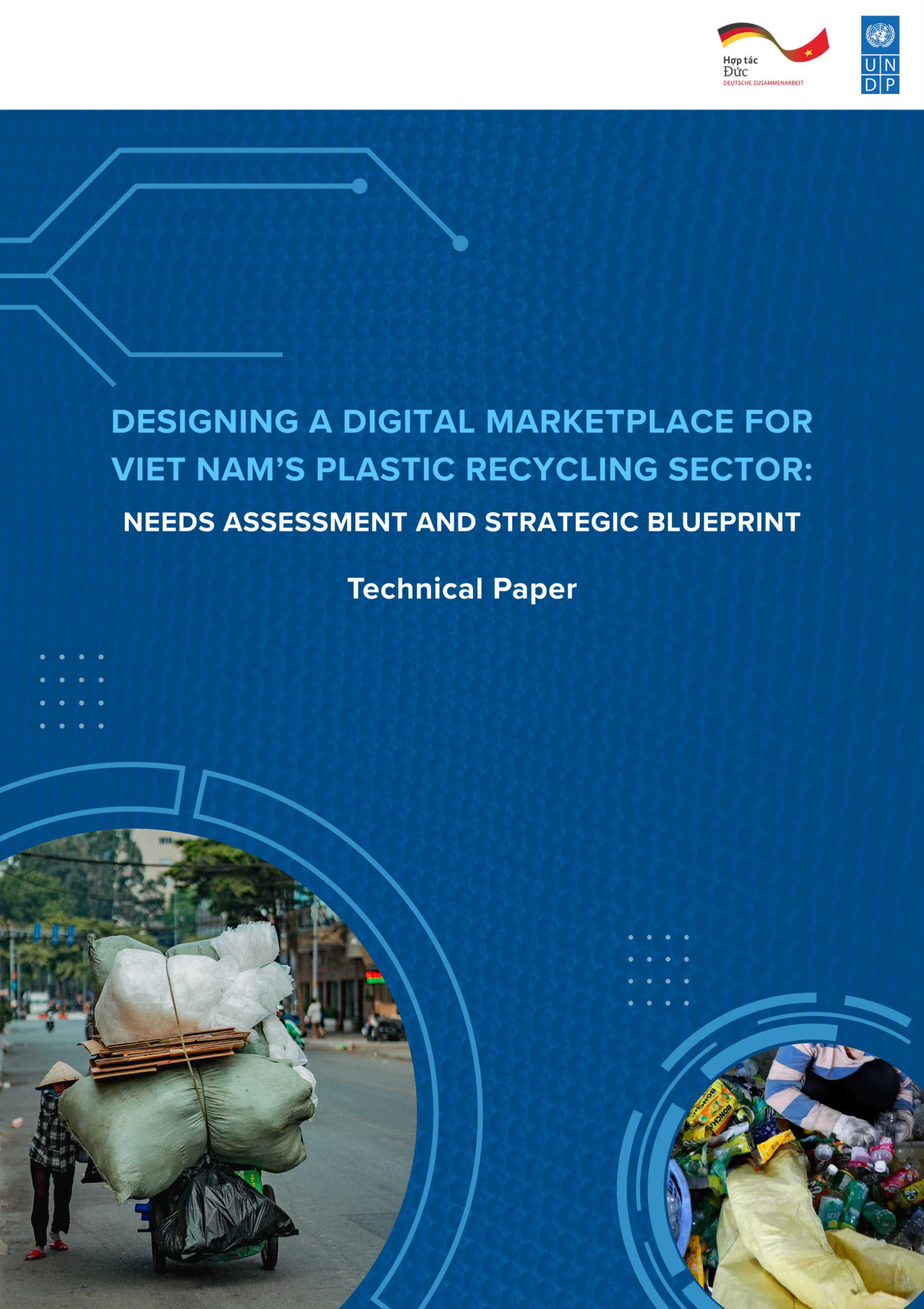Issue Brief: Inclusion of Informal Waste Workers (IWWs) in the transition to sustainable waste management
Following the revision of the Law on Environmental Protection (LEP) in 2020, new provisions anchoring waste management to the process of the circular economy are being implemented such as plastic waste reduction, waste sorting obligations, and the Extended Producer Responsibility (EPR) policy for packaging which will come into effect in 2024. The EPR will fundamentally affect the waste collection, sorting and recycling system in Viet Nam, which is partially undertaken by the informal sector.
In this context, it is critical to reconsider the integration of collectors into the waste management system. As key players, they are actively contributing to decreasing the amount of waste which winds up in the environment, and by doing so, reducing the financial burden for municipalities. Nevertheless, they are not officially recognized by public authorities, an issue which has been identified as a major bottleneck for the Informal Waste Workers (IWWs) in accessing social services. This informal workforce, most of which are women, is vulnerable to waste price fluctuations, land occupation issues, health injuries and suffers from social stigma.
Drawings on the lessons learned from pilot projects and findings from the workshop in Quy Nhon, this brief offers recommendations for provincial and central policymakers, to strengthen the livelihoods of informal waste workers and support their inclusion in evolving waste management systems.












